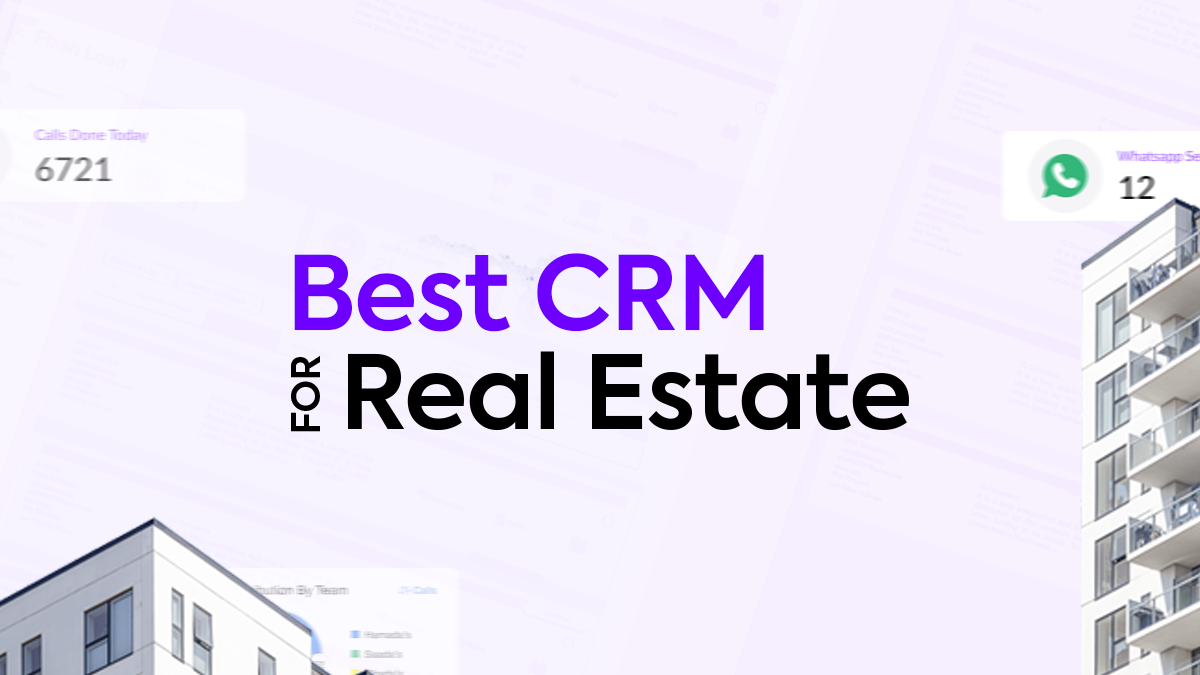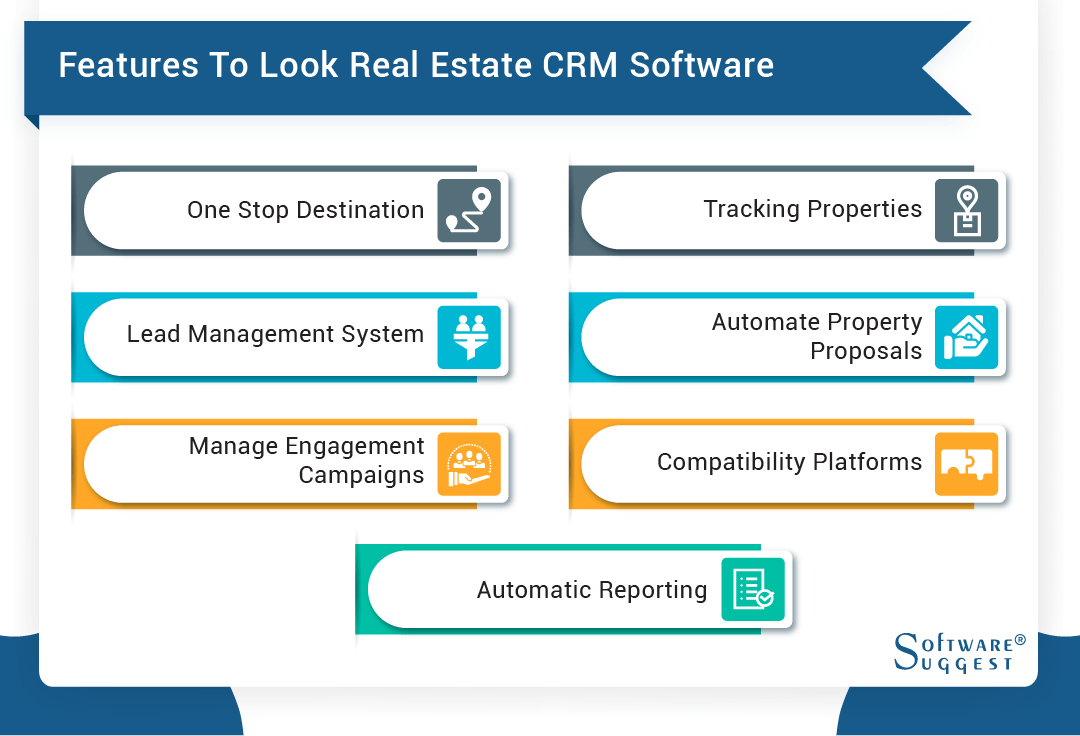Best crm for real estate 2023 – In the dynamic world of real estate, choosing the right CRM (Customer Relationship Management) solution is crucial for success. Our guide to the best CRM for real estate in 2023 empowers you to streamline operations, enhance communication, and nurture relationships, propelling your business to new heights.
With a comprehensive overview of essential features, benefits, and industry-leading solutions, this guide provides invaluable insights into the transformative power of CRM in real estate. Discover how a CRM can revolutionize your lead management, property listings, and customer interactions, ultimately driving growth and profitability.
Features and Capabilities of Best CRM for Real Estate in 2023
In today’s competitive real estate market, a robust customer relationship management (CRM) system is essential for brokers and agents to manage their businesses effectively. An ideal CRM for real estate should offer a comprehensive suite of features and capabilities tailored to the unique needs of the industry.
One of the most important features of a real estate CRM is its ability to manage contacts and leads. A well-organized CRM will allow you to track all of your interactions with potential and current clients, including phone calls, emails, and appointments.
This information can be used to nurture leads and build relationships, which can ultimately lead to more closed deals.
Lead Generation and Management
- Automated lead capture from multiple sources, such as websites, social media, and email campaigns
- Lead scoring and qualification to prioritize the most promising leads
- Lead routing and assignment to ensure timely follow-up
- Lead nurturing campaigns to keep prospects engaged and move them through the sales pipeline
Contact Management
- Centralized storage of all client information, including contact details, property preferences, and transaction history
- Automated reminders for follow-ups, appointments, and birthdays
- Segmentation and tagging to group contacts based on specific criteria, such as location, property type, or lead source
- Communication tracking to monitor all interactions with clients
Transaction Management
- End-to-end tracking of all real estate transactions, from lead generation to closing
- Automated workflows to streamline tasks and reduce errors
- Document management to store and share important documents, such as contracts, disclosures, and inspection reports
- Collaboration tools to facilitate communication and coordination among team members
Reporting and Analytics
- Robust reporting capabilities to track key performance indicators (KPIs), such as lead conversion rates, sales volume, and agent productivity
- Data visualization tools to identify trends and patterns
- Customizable dashboards to provide personalized insights
- Integration with third-party tools, such as accounting software and marketing automation platforms
In addition to these core features, the best CRM for real estate in 2023 should also offer mobile accessibility and seamless integration with other software applications. This will allow you to manage your business from anywhere, at any time, and ensure that all of your data is synchronized and up-to-date.
Benefits of Using a CRM for Real Estate
Implementing a CRM system for real estate operations offers a myriad of advantages that can revolutionize business processes. From streamlining daily tasks to fostering stronger customer relationships, a CRM provides a centralized platform that empowers real estate professionals to elevate their productivity and drive success.
A comprehensive CRM streamlines communication channels, enabling seamless collaboration between agents, clients, and stakeholders. It automates repetitive tasks, such as scheduling appointments, sending emails, and generating reports, freeing up valuable time for agents to focus on high-value activities like lead generation and relationship building.
Enhanced Communication and Collaboration
A CRM serves as a central hub for all communication related to real estate transactions. It consolidates emails, phone calls, text messages, and notes in one easily accessible location, eliminating the need for multiple platforms and reducing the risk of miscommunication.
With a CRM, agents can track the progress of conversations, share updates with colleagues, and keep clients informed every step of the way. This streamlined communication fosters a collaborative environment, ensures that all parties are on the same page, and ultimately leads to a smoother and more efficient transaction process.
Comparison of Top CRM Solutions for Real Estate
Selecting the optimal CRM solution for your real estate business requires a thorough evaluation of the leading options. To assist you in making an informed decision, we present a comprehensive comparison of the top CRM solutions specifically designed for real estate.
This comparison table provides an overview of the key features, pricing, strengths, and weaknesses of each CRM. By carefully examining these aspects, you can identify the solution that best aligns with your unique requirements and objectives.
Feature Comparison
| Feature | CRM Solution A | CRM Solution B | CRM Solution C |
|---|---|---|---|
| Lead Management | Lead capture, lead qualification, lead tracking | Lead generation, lead nurturing, lead segmentation | Lead capture, lead scoring, lead distribution |
| Contact Management | Contact profiles, contact history, contact segmentation | Contact management, relationship tracking, communication history | Contact management, contact tagging, contact import/export |
| Property Management | Property listings, property search, property tracking | Property management, property marketing, property analytics | Property listings, property brochures, property scheduling |
| Marketing Automation | Email marketing, social media marketing, drip campaigns | Marketing automation, lead generation, email templates | Marketing automation, campaign management, lead nurturing |
| Reporting and Analytics | Sales reports, marketing reports, lead performance | Customizable reports, dashboards, real-time analytics | Reporting and analytics, data visualization, predictive analytics |
Pricing Comparison
| Pricing | CRM Solution A | CRM Solution B | CRM Solution C |
|---|---|---|---|
| Basic Plan | $29/month | $39/month | $49/month |
| Professional Plan | $49/month | $69/month | $89/month |
| Enterprise Plan | $99/month | $149/month | $199/month |
Strengths and Weaknesses
- CRM Solution A:Strong lead management and marketing automation capabilities; user-friendly interface; limited reporting and analytics.
- CRM Solution B:Comprehensive contact management and relationship tracking; customizable reporting and analytics; complex user interface.
- CRM Solution C:Robust property management and marketing features; advanced reporting and analytics; higher pricing compared to competitors.
Unique Offerings
- CRM Solution A:Mobile app with lead capture and contact management functionality.
- CRM Solution B:Integration with popular real estate platforms (e.g., MLS, Zillow).
- CRM Solution C:Artificial intelligence (AI) for lead scoring and predictive analytics.
Implementation and Customization of a Real Estate CRM

Implementing a CRM for real estate involves several key steps:
1. Planning and Preparation: Define business goals, identify user requirements, and establish a budget.
2. Vendor Selection: Evaluate different CRM solutions based on features, pricing, and support.
3. Implementation: Configure the CRM, set up integrations, and migrate data from existing systems.
4. Customization: Tailor the CRM to fit specific business processes and workflows.
5. User Training: Educate users on the CRM’s functionality and best practices.
Data Migration
Data migration is crucial for a successful CRM implementation. Ensure data is accurate, complete, and transferred seamlessly from legacy systems to the new CRM.
User Training
Proper user training empowers agents to maximize the CRM’s capabilities. Provide comprehensive training on navigation, data entry, and lead management.
Best Practices for Real Estate CRM Management: Best Crm For Real Estate 2023
Effective real estate CRM management is crucial for maximizing lead generation, nurturing relationships, and closing deals. Here are some best practices to follow:
Optimize Data Entry:Maintain accurate and up-to-date contact information, property details, and communication history. Use data import tools, establish clear data entry protocols, and conduct regular data audits to ensure data integrity.
Tracking Leads
- Implement lead scoring to prioritize leads based on their engagement and potential.
- Create automated lead nurturing campaigns to engage leads at different stages of the sales funnel.
- Use lead tracking tools to monitor lead activity, identify conversion opportunities, and evaluate marketing ROI.
Nurturing Relationships, Best crm for real estate 2023
Personalize Communication:Tailor marketing messages and interactions to individual lead preferences and interests. Use segmentation and personalization tools to deliver targeted content and nurture relationships.
Provide Value:Offer valuable content, resources, and insights to leads and clients. Share market updates, property listings, and educational materials to establish trust and build rapport.
Regular CRM Audits:Conduct regular audits to evaluate CRM performance, identify areas for improvement, and ensure data accuracy. Review lead conversion rates, response times, and customer satisfaction metrics to optimize processes and drive results.
Emerging Trends in Real Estate CRM

The real estate industry is undergoing a digital transformation, and customer relationship management (CRM) systems are at the forefront of this change. Real estate CRMs are becoming increasingly sophisticated, incorporating the latest technologies to help professionals manage their businesses more efficiently and effectively.
Some of the key emerging trends in real estate CRM include the integration of artificial intelligence (AI), automation, and data analytics. These advancements are transforming the way real estate professionals manage their businesses, allowing them to:
AI and Machine Learning
- Automate tasks such as lead generation, lead qualification, and scheduling appointments.
- Personalize marketing campaigns to target specific audiences.
- Identify and predict customer needs.
Automation
- Streamline communication with clients and leads.
- Generate automated reports and insights.
- Manage follow-up tasks and reminders.
Data Analytics
- Track key performance indicators (KPIs) and measure the effectiveness of marketing campaigns.
- Identify trends and patterns in customer behavior.
- Make data-driven decisions to improve business performance.
Closing Notes

Embracing the best CRM for real estate in 2023 is not just an investment in software; it’s an investment in the future of your business. By harnessing the power of technology, you can optimize your operations, elevate customer experiences, and stay ahead in the competitive real estate market.
As the industry continues to evolve, a robust CRM will serve as your indispensable partner, empowering you to navigate challenges, seize opportunities, and achieve unparalleled success.
